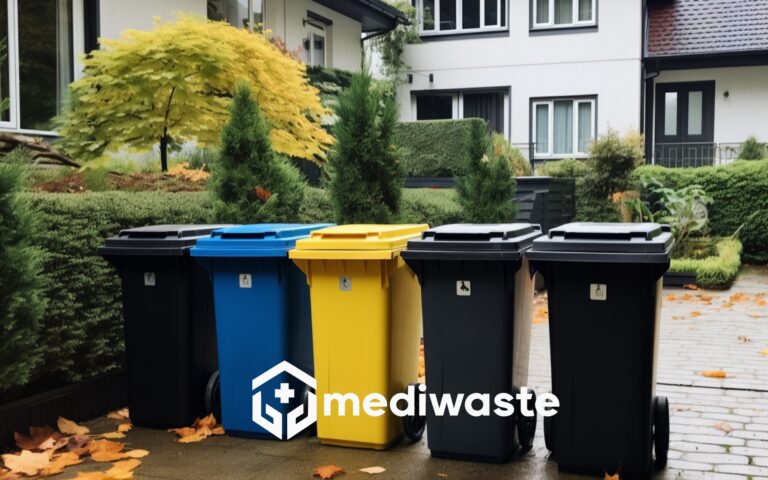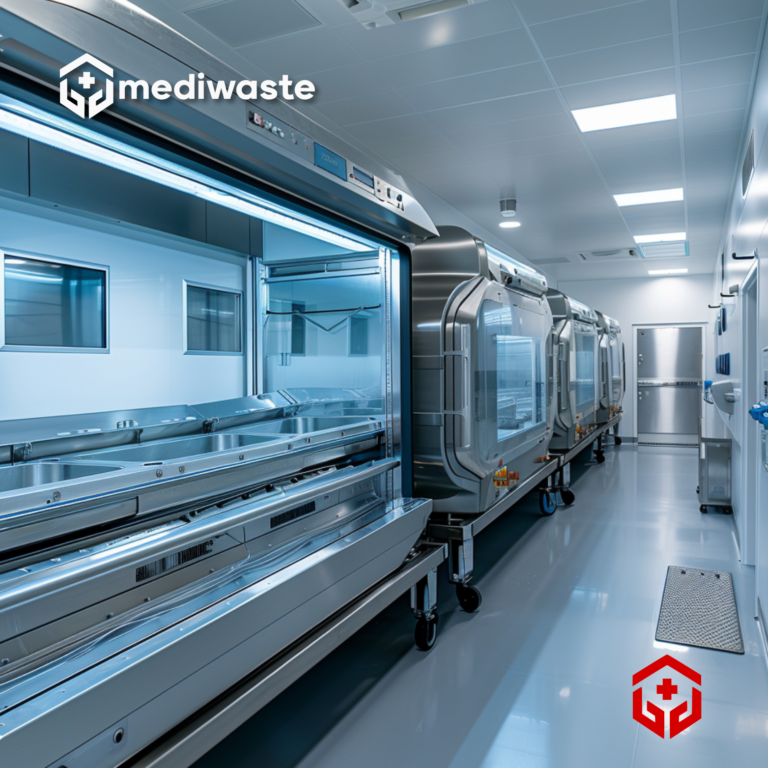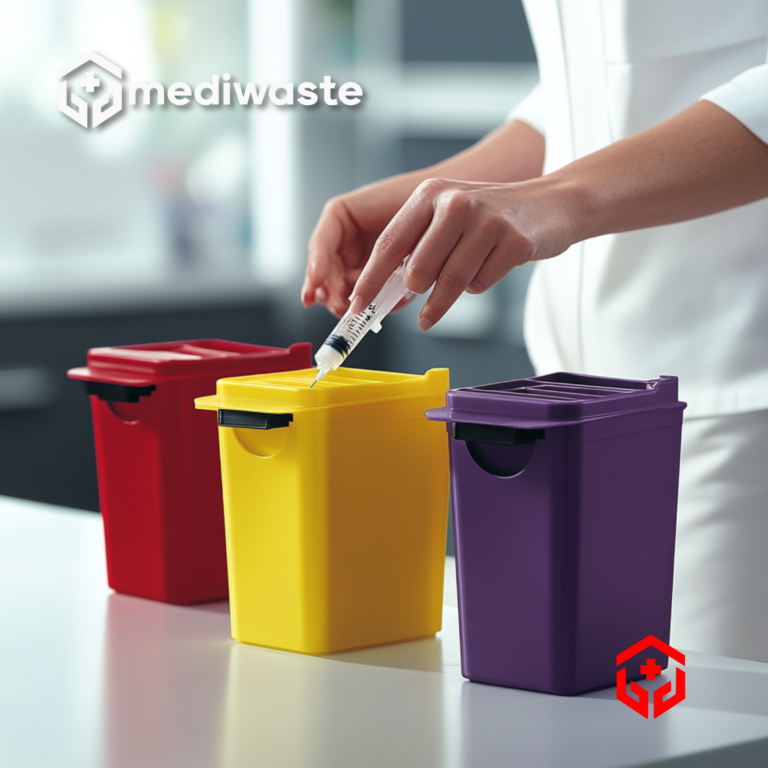Sustainable Disposal Methods for Expired Pharmaceuticals
The proper disposal of expired pharmaceuticals is a critical issue in healthcare waste management, with significant implications for public health and environmental protection. As the volume of pharmaceutical waste continues to grow globally, it’s essential to implement sustainable disposal methods that minimize environmental impact while ensuring safety and regulatory compliance.

Understanding the Challenge of Expired Pharmaceuticals
Expired medications pose several risks if not disposed of properly:
- Accidental poisoning if drugs end up in household trash
- Potential for misuse or abuse of outdated prescriptions
- Environmental contamination of water systems and ecosystems
- Contribution to the development of antibiotic-resistant bacteria
According to studies, the percentage of household medication that becomes waste ranges from 3% to 50%. In 2018, French households alone disposed of 17,600 tonnes of unused or expired medicine, equivalent to 260 grams per person . This significant volume of pharmaceutical waste necessitates effective and sustainable disposal strategies.
Sustainable Disposal Methods
1. Incineration with Energy Recovery
High-temperature incineration is one of the most effective methods for disposing of expired pharmaceuticals. Modern incinerators can destroy medications completely while capturing energy from the process.
Advantages:
- Complete destruction of drug compounds
- Energy recovery potential
- Suitable for a wide range of pharmaceutical waste types
Considerations:
- Requires strict emission control to prevent air pollution
- Higher initial investment costs
MediWaste offers state-of-the-art incineration facilities that comply with all regulatory standards, ensuring safe and efficient disposal of expired pharmaceuticals while minimizing environmental impact.
2. Chemical Neutralization
This method involves using chemicals to render pharmaceutical waste inert and non-hazardous.
Advantages:
- Effective for liquid pharmaceutical waste
- Can be performed on-site at healthcare facilities
Considerations:
- Requires careful handling of chemicals
- Not suitable for all types of pharmaceuticals
- Generates chemical byproducts that need proper disposal
MediWaste provides guidance on appropriate chemical neutralization techniques and offers safe disposal services for the resulting by-products.
3. Advanced Oxidation Processes
These processes use combinations of oxidizing agents, UV light, and catalysts to break down pharmaceutical compounds.
Advantages:
- Highly effective at destroying complex drug molecules
- Minimal by-product generation
Considerations:
- Higher operational costs
- Requires specialized equipment and expertise
4. Biological Treatment
Certain pharmaceuticals can be broken down using biological processes such as composting or bioremediation.
Advantages:
- Environmentally friendly
- Low operational costs
Considerations:
- Not suitable for all types of pharmaceuticals
- Longer treatment times
- Requires careful monitoring to ensure complete degradation
Implementing Sustainable Disposal Programs
To effectively manage expired pharmaceuticals, healthcare facilities should consider the following steps:
- Conduct a Waste Audit: Assess the types and quantities of pharmaceutical waste generated.
- Develop a Comprehensive Waste Management Plan: Integrate multiple disposal methods based on waste types and local regulations.
- Implement Take-Back Programs: Encourage patients to return unused medications to pharmacies for proper disposal.
- Staff Training: Educate healthcare workers on proper waste segregation and disposal procedures.
- Partner with Specialized Waste Management Companies: Work with experts like MediWaste to ensure compliant and sustainable disposal practices.
The Role of Extended Producer Responsibility
Some countries have implemented extended producer responsibility (EPR) schemes for pharmaceutical waste. For instance, France, Sweden, Portugal, and Spain have such schemes with the highest collection ratios . These programs place the responsibility for proper disposal on pharmaceutical manufacturers, encouraging more sustainable practices throughout the product lifecycle.
Public Awareness and Education
Improving public awareness about proper medication disposal is crucial. Studies show that in some countries, a significant portion of the population is unaware of correct disposal methods. For example, in Latvia, 60% were unaware of proper medicine disposal methods. Healthcare facilities can play a key role in educating patients about proper disposal:
- Provide clear instructions on medication packaging
- Offer take-back programs at pharmacies
- Conduct community outreach and education campaigns
MediWaste supports these efforts by providing educational materials and resources to help healthcare facilities engage with their communities on sustainable pharmaceutical disposal.
Conclusion
Sustainable disposal of expired pharmaceuticals is a complex challenge that requires a multi-faceted approach. By implementing a combination of advanced disposal technologies, comprehensive waste management programs, and public education initiatives, healthcare facilities can significantly reduce the environmental impact of pharmaceutical waste while ensuring public safety.
MediWaste is committed to supporting healthcare providers in developing and implementing sustainable pharmaceutical waste disposal strategies. Our expertise in regulatory compliance, advanced disposal technologies, and environmental best practices makes us an ideal partner for facilities looking to improve their waste management practices.
Contact MediWaste
For expert guidance on implementing sustainable disposal methods for expired pharmaceuticals, contact MediWaste today. Our team of specialists can provide tailored solutions to help your facility optimize its pharmaceutical waste management practices, ensure regulatory compliance, and minimize environmental impact.
Whether you’re looking to improve your current disposal methods or implement a comprehensive waste management program, MediWaste has the expertise and resources to support your sustainability goals. Reach out to us to schedule a consultation and take the first step towards more sustainable pharmaceutical waste management in your healthcare setting.







